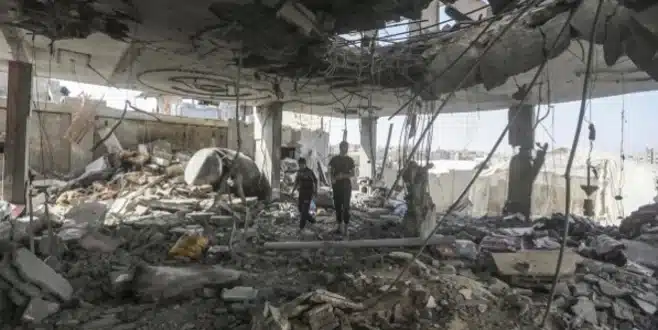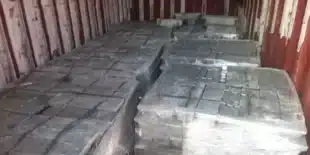On Monday, the Israeli military instructed tens of thousands of Rafah residents in southern Gaza to evacuate, hinting at the possible commencement of a ground invasion. This directive has thrown a wrench into the fragile international efforts, including those by the CIA director, to negotiate a ceasefire. Hamas, along with Qatar, which has been mediating these talks, has cautioned that an invasion could completely derail the peace discussions.
Rafah is considered the last major stronghold of Hamas after a protracted seven-month conflict. Israeli military spokesman Lt. Col. Nadav Shoshani communicated that approximately 100,000 residents were told to relocate to Muwasi, an area designated by Israel for humanitarian relief. Despite describing the impending action as a “limited scope operation,” Shoshani did not confirm if this move marks the start of an extensive city invasion—a tactic Israel has previously employed without prior announcements.
The evacuation was ordered following a lethal rocket attack by Hamas that killed three Israeli soldiers. The evacuation messages were disseminated via airdropped leaflets, text messages, and radio broadcasts, directing residents to move to Muwasi where Israel has purportedly increased humanitarian assistance.
Globally, this planned invasion has stirred significant concern due to the potential risk it poses to over a million Palestinian civilians sheltering in Rafah. The town, densely populated with displaced residents, has become a flashpoint in the conflict, with the international community, particularly the United States, urging Israel to forego the invasion due to the lack of a credible civilian protection plan.
The tension is compounded by conflicting objectives; while the U.S., Egypt, and Qatar push for a ceasefire, Israeli Prime Minister Benjamin Netanyahu insists on pursuing military objectives in Rafah with or without an agreement. This stance is echoed by Israel’s Defense Minister Yoav Gallant, who expressed skepticism about Hamas’s commitment to peace following an attack at a key aid delivery point.
Lt. Col. Shoshani has not explicitly linked the planned operation to recent hostilities and stated that aid flow will not be affected as other crossings remain operational. However, he avoided commenting on U.S. admonitions against the invasion and did not confirm whether the evacuation plans were coordinated with Egypt, which has warned that such actions could jeopardize its longstanding peace treaty with Israel.
In Rafah, the issuance of evacuation flyers detailing safe zones and humanitarian aid locations has prompted discussions among residents about the safest strategies for relocation, with many preferring to move in groups for safety. The community remains apprehensive, recalling past instances where movements during evacuations led to shootings by Israeli forces.


